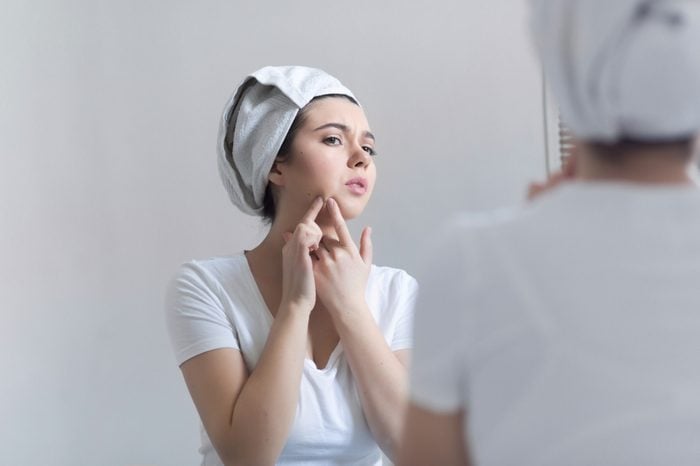
The truth about adult acne
With millions of people affected by acne every year, the American Academy of Dermatology reports acne is the most prevalent skin condition in the United States—with many sufferers who are well past puberty. For those battling regular breakouts, studies show that acne isn’t purely a cosmetic issue, but can also contribute to poor self-esteem or depression. “As an adult, there is no such thing as mild acne,” says Doris Day, MD, of Day Dermatology and Aesthetics in New York City. “Every pimple is an insult and lasts too long.” (Here are sneaky reasons you’re having an acne breakout.) Fortunately, between classic methods and continually emerging dermatological technology, it is possible to achieve clear skin.
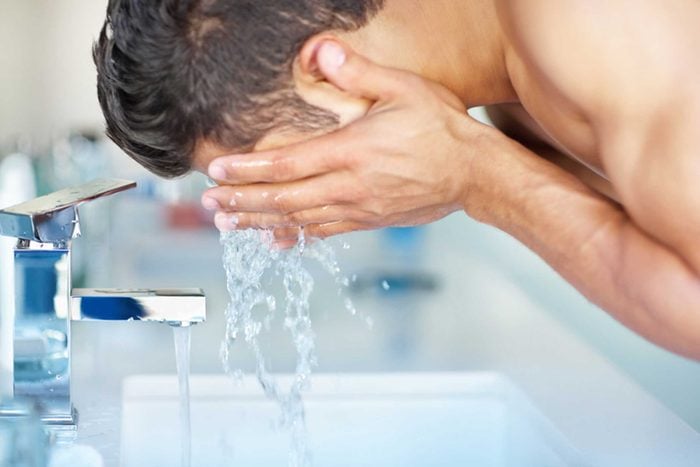
Start a basic skincare regimen
Acne thrives on neglected skin. Many cases of adult acne result from dead skin that clogs pores. That’s why the first line of defense against acne should be good daily cleansing habits. “An ideal daily skincare routine for adults with acne may include a medicated acne wash, glycolic or salicylic exfoliating treatment pads, and a lightweight moisturizer,” says Jeff Birchall, MD, medical director of Dermacare Laser and Skincare Clinic in San Diego. Learn about the morning routines of people with great skin.
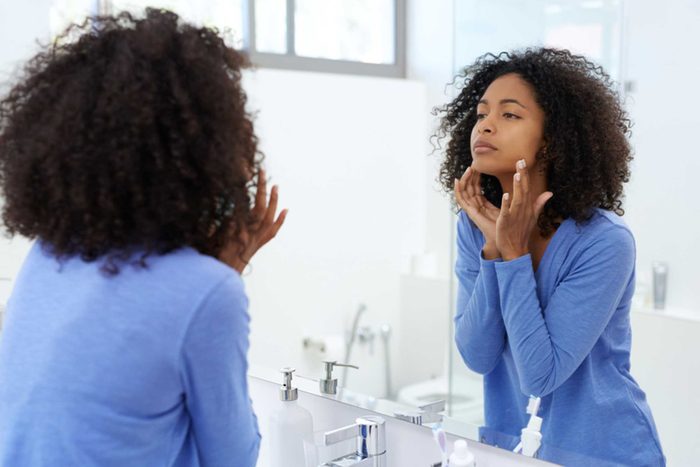
Consider adding retinol to your routine
If your acne isn’t responding to glycolic or salicylic treatments, think about adding retinoids to your nightly routine. This topical form of vitamin A helps prevents pores from getting clogged. There is strong scientific evidence to support using over the counter or prescription-strength retinoids to treat persistent acne. Plus, retinoids pack the added benefit of anti-aging properties by slowing the breakdown of collagen. Find out what dermatologist use overnight to wake up with younger-looking skin.

Go on a cleaning kick
Another contributing cause of many cases of acne is bacteria, and the bad news is most phones—which most of us are essentially tethered to like an umbilical cord—are teeming with it. According to a 2016 study of medical students’ cell phones, 96 percent of them were contaminated with some sort of bacteria. Dr. Birchall explains that when that bacteria is then repeatedly pressed against the face during phone calls, acne can get exacerbated. The same is also true for pillow cases that rarely see the washing machine or dirty makeup brushes. Thankfully, combatting that is simple enough: He suggests regularly cleaning anything the face contacts. These are some of the everyday items you should be washing a lot more often.
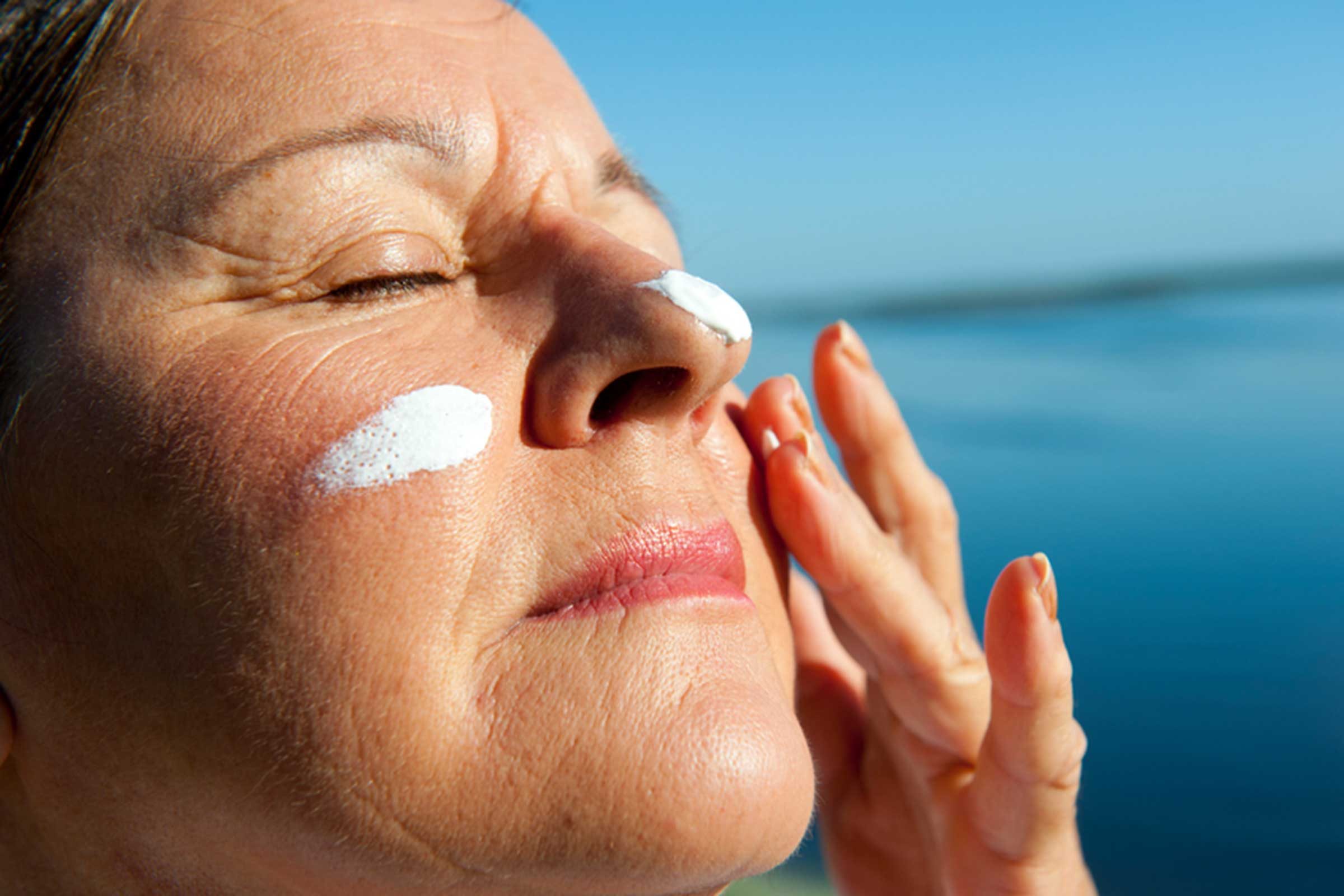
Read product labels
Instead of grabbing the first bottle of sunscreen on the shelf, take a moment to seek out a product that will protect from sun without exacerbating acne. The American Academy of Dermatology recommends scanning labels for keywords such as non-acnegenic, non-comedogenic, and oil-free. The same goes for moisturizers, makeup, or anything else applied to the skin. Here’s how to decode the language on the label of your sunscreen.
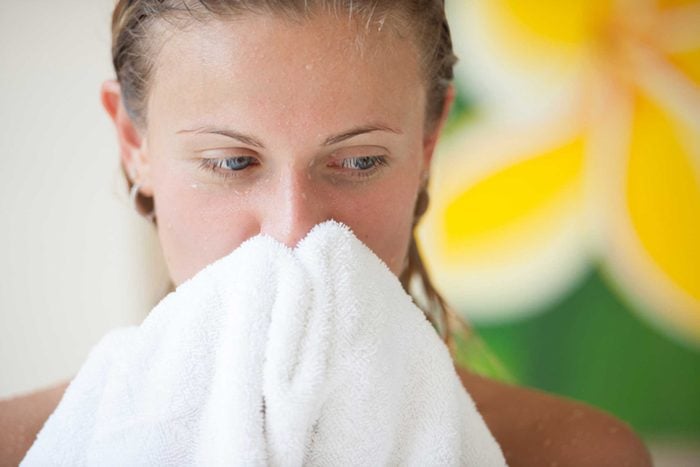
Watch out for too much of a good thing
Even with the best of intentions, too much cleansing and exfoliating can make acne worse. By stripping away all of the skin’s natural oils, pores are vulnerable to bacteria. The simple solution: ease up on cleansers and limit usage of home exfoliating brushes to once or twice per week. Dr. Day even suggests adding some moisture back to the skin by way of coconut oil, which has been found to help protect against inflammatory bacteria. Here are more neat beauty uses for coconut oil.
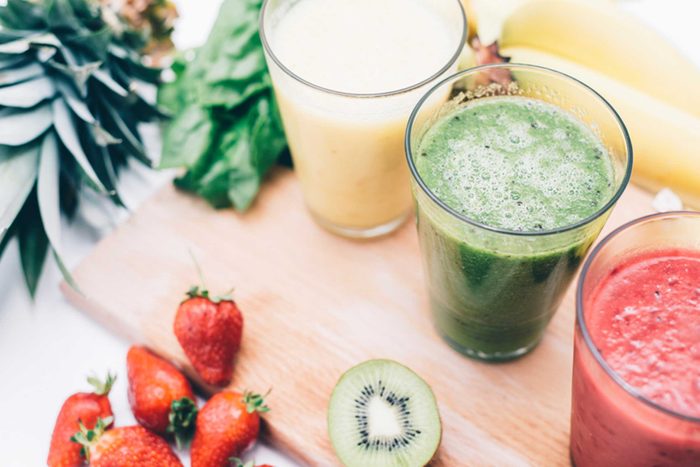
Reevaluate your diet
Despite the popular belief that certain greasy foods directly contribute to acne, there is actually insufficient evidence of a link between French fries and pimples. But when it comes to preventing breakouts, some foods are certainly better than others. To keep skin in check, Dr. Day suggests eating a diet high in antioxidants and low in processed foods. Still, she cautions that a diet overhaul alone won’t clear up skin. Here are foods that can help clear acne—and a few that make it worse!
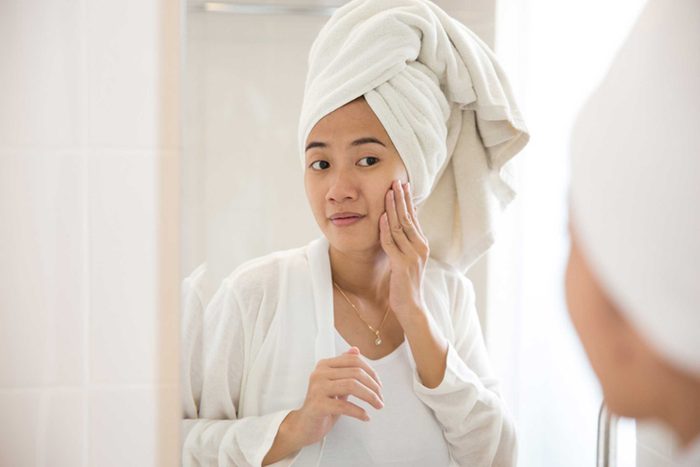
Acknowledge your hormones may be to blame
Anyone who endured puberty knows that acne and hormones have an unfortunate bond. Although your hormones may not be flaring up as much as in middle school, adults continue to be affected by them—which Dr. Day explains is often a main cause for continued breakouts. The double whammy is that skin doesn’t bounce back as quickly as in younger days. “As you get older, the marks tend to last longer and seem more likely to leave scars,” she says. That is why diet and at-home skincare tactics cannot always cure the issue. (Find out if acne face mapping can pinpoint the cause of your pesky breakouts.)
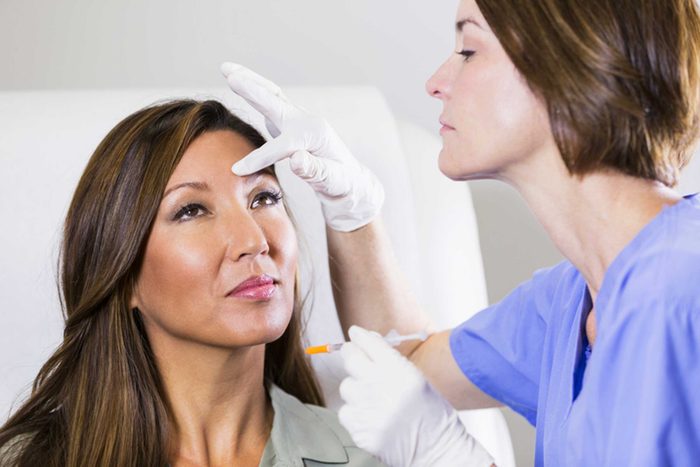
Get help from a dermatologist
It may take a team effort to defeat acne once and for all. Dr. Birchall recommends combining a deep pore treatment with therapies offered by dermatologists, such as Blu-U Blue Light Therapy or Levulan PhotoDynamic Therapy. Even then, he says there is no such thing as an instant fix—with most people requiring three to six months of regular treatments to see the clear skin they want. But with a little patience and diligence, it is possible to wipe out acne for good. Find out if blue light therapy for acne might be for you.
